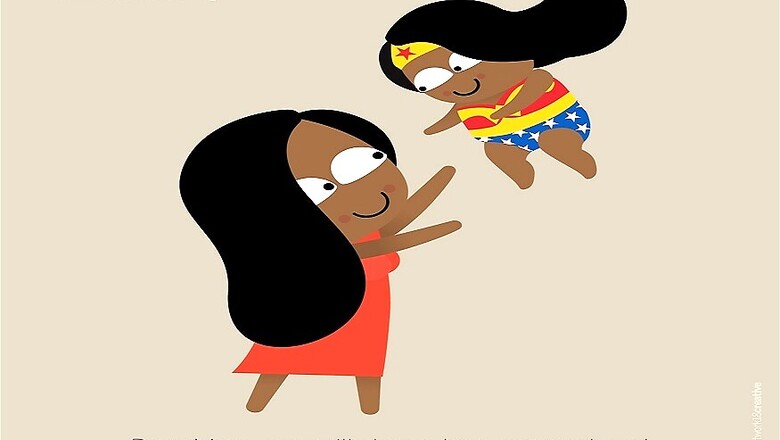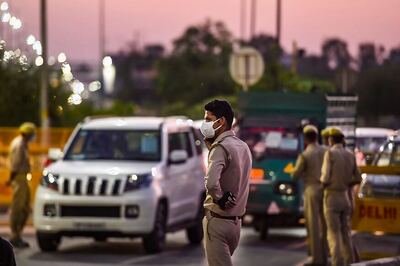
views
‘You’re not complete as a woman unless you become a mother.’
With these brilliantly misleading words that every woman in India must have heard at some point of her life begins Pooja Pande’s book ‘Momspeak: The Funny, Bittersweet Story of Motherhood in India’.
This spectacularly inane piece of wisdom is of course attributed to all the ‘aunties we know’ because who else would say such things, right?
Pande’s book busts myths about motherhood in India, and therefore, it would make a wonderful gift for anyone who had ever asked a married couple when they would announce the ‘good news’, or preached to a single woman that she should get married fast because her biological clock is ticking.
It is for those women who only say half-truths like, ‘having a baby is the most wonderful feeling in the world’ and it is definitely for those people who think that the primary identity of a woman after she gives birth is that of a ‘mother’.
Others should just read it because it is relatable, uplifting and packs some really heavy punches in kid gloves, as it delves into the personal lives of mothers whom we often exclude from popular mainstream narratives -- like sex worker moms, lesbian parents, as well as mothers of children with special needs.
The book is partly semi-autobiographical, and peppered with anecdotes from women who belong to different classes and castes of society.
The first few chapters of the book aren’t very engaging, especially where Pande describes her own super-prepared pregnancy phase -- a schedule filled with prenatal yoga, and many smoothies -- but her effortless writing, and disarming sense of humour carries them through.
As she delves into her postpartum depression though, her portrayal of new mother’s guilt, and her sense of fear and isolation after giving birth, that many women experience after pregnancy, is gripping. Her storytelling finds its rhythm and pace here onwards.
She unveils personal stories of mothers from different parts of India. The chapter on sex worker mothers from Sangli, which depend heavily on interviews conducted with members of Vaishya Anyay Mukti Parishad (VAMP), showcase studies filled with hope and courage.
The story of a sex worker’s daughter who goes on to become a doctor is heart-warming, but more importantly, this chapter provides a rare glimpse on sex workers’ everyday lives, where their identity is more than what they do.
Their non-judgmental way of raising children, and their struggle to give their kids opportunities that they did not get makes for an inspirational read.
The book outlines some very patriarchal practices that are accepted as norms in our society, even to this day. The identity of a child is predominantly that which he/she gets from his/her father.
This is an issue of major concern for children of sex workers who face many questions in schools regarding their father’s identity, which many of them don’t know about.
A similar problem is also faced by kids raised by lesbian mothers. Another fear for lesbian mothers is how society would react if one of them conceive, which often stops lesbian couples from having their own kids, even when both mothers are capable of conceiving their child.
The book delves into the nightmare that abortion can be when a woman, especially in rural India, chooses that she doesn’t want to be a mother. The fear of societal stigma pushes her towards using natural pedantic methods instead of going to a clinic (which many times are not even there).
Such ‘home techniques’ often cause permanent damage to a woman’s health. One such story told in that book is that of Kavita Devi, the editor-in-chief of India’s first feminist digital rural news network, ‘Khabar Lahariya’.
Pande’s book, above all, is inclusive. While it talks about a woman’s right to not choose to be a mother, it doesn’t alienate or dismiss women, who think motherhood is their calling.
It casts a loving, non-judgmental lens on the lives of women from different walks of life, and shows how they have accepted, rejected or simply changed their minds about motherhood with changing years.
One such story told in the book is of feminist poet, Kamla Bhasin, who had no intention of becoming a mother, and had opted for an abortion when she found out she was pregnant at the age of 33.
But, on the morning she was scheduled to get the procedure done, she changed her mind (heart?) and decided to experience motherhood just out of curiosity, and she liked it enough to have other kids after her daughter, Meeto.
Pande reveals herself strategically in the book. While she takes over as a narrator in relaying stories where she thinks her voice will add colour and texture to the interviews she had conducted, she casually passes on the role of the narrator to the mothers themselves, where the mothers can articulate the joys and challenges of motherhood deftly.
Pande also swings from Adrienne Rich to Jennifer Aniston to Manusmriti in one breath while talking about motherhood and refers to much canonical literature on the topic.
In her book, Pande says, “the building of the mummy mythopoeia has been a gradual, deliberate one; the curious intermingling of the damned and the divine built over time, through stories and fables, mythology that takes on the garb of religion especially in its worst instructional form that sedates thought but urges action, via lore and legends.”
Pande carefully sifts out this mythopoeia from the idea of a ‘real mother’ and reveals her as a living, and breathing human being with her own desire, and ambitions rather than the stereotypical notion of an 'Indian mother' that portrays her as a self-sacrificing woman, who exists only for her children.


















Comments
0 comment